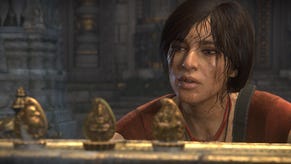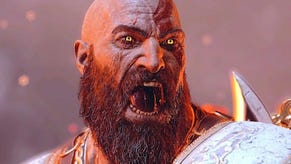Beyond Infinity
The Infinity Ward spat is a symptom of a wider power struggle between top studios and publishers.
GamesIndustry.biz, the trade arm of the Eurogamer Network, recently completed the next step in its evolution toward greater support for the videogames business with the implementation of a full registration system.
Despite plenty of sage nose-tapping and wild speculation, few people outside of those directly involved know exactly what happened between Infinity Ward and Activision this week.
It's an extraordinary story - the studio which created last year's best-selling game, and one of the best-selling entertainment properties in history, turning up to work to find security conspicuously posted around the building; the studio's bosses and founders called into a meeting and abruptly dismissed, their fate revealed to the world by shocked-sounding status updates on their profile pages.
Activision, which contrary to many online reports owns Infinity Ward outright, rumbles about things like "insubordination". Those at the studio keep their lips sealed, for the most part, although hints of deep disquiet regarding the studio's share of the loot from Modern Warfare 2's enormous windfall are a common theme in the vague mutterings escaping the firm.
That's seemingly confirmed when the studio heads involved, Jason West and Vince Zampella, file suit against Activision over unpaid royalties and issues relating to control of the Modern Warfare franchise.
It will almost certainly take months, if not years, for the full picture of what just happened to become clear. Even staff at the studio itself seem somewhat unclear about the details, and of course the view taken by Activision differs significantly from that of West and Zampella. What seems clear, though, is that Infinity Ward - despite being a wholly owned subsidiary - wanted creative control of its franchise and a share of the cash it generated, while Activision seemingly wanted to treat IW as an internal studio, paying them salaries (and presumably bonuses, where applicable) and dictating what they work on.
Beyond that, the devil is in the details. Activision may be playing corporate hardball in an effort to entirely control the Modern Warfare franchise and nip any possible challenge to the publisher's management in the bud, trusting that by beheading the studio's boisterous leadership it will render the creative staff docile - not exactly a move with a strong precedent of success in the creative industries, it has to be noted.
Alternatively, West and Zampella may truly have overstepped the mark, perhaps by talking to other publishers or laying groundwork for taking key staff and creating a new independent studio (bearing in mind that that's exactly how Infinity Ward was formed in the first instance).
Either way - and only a court of law is ever going to establish any semblance of truth here - I can't help but feel that the whole ruckus taking place at Infinity Ward's offices north of Los Angeles owes much to the presence of another of Activision's subsidiaries to the south of the city. Although absent from much of the discourse around the issue, Blizzard casts a long shadow over the whole affair.
Blizzard, after all, is the "other" jewel in the Activision crown. World of Warcraft is one of three franchises - next to Guitar Hero and Call of Duty / Modern Warfare - which generates well over two thirds of Activision's annual revenue, and along with the rest of Blizzard's catalogue that's an important enough role to earn it equal billing in the publisher's name, Activision Blizzard.
That, of course, could be said to be an accident of corporate history, coming as a result of a merger with Blizzard's former parent company Vivendi, but the reality is that it also expresses a clear gulf between the status of Blizzard and that of other subsidiary studios. Blizzard, the company's name clearly demonstrates, is special.
Within the industry, anecdotes about just how special Blizzard is abound. I'm particularly fond of the (probably apocryphal) story about a slightly pompous corporate upstart at the finance department of a former Blizzard owner (Vivendi, presumably) turning up unannounced at the studio to demand more oversight of its internal finances and crack the corporate whip - only to find himself dumped unceremoniously out of the building.
It's almost certainly either a total fabrication or a massive exaggeration, of course, but the very popularity of this story as a drinking tale within the industry tells you a lot about Blizzard's status. This is a goose that may lay its eggs slowly and carefully, but they're always golden, without fail - and thanks in part to expert corporate manoeuvring over the year by Blizzard's bosses, its parent companies have always left the studio to its own devices, enjoying revenues but exerting precious little control.









